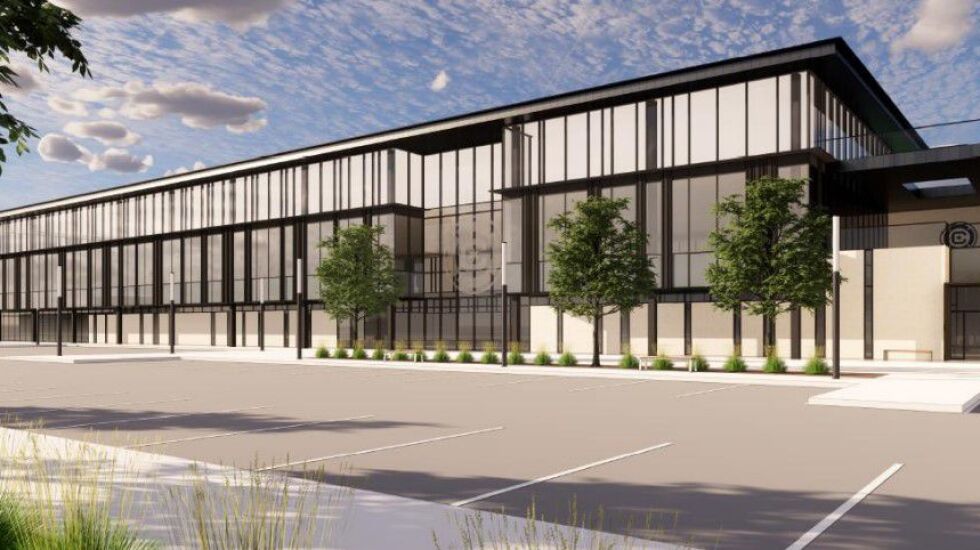
The Chicago Fire soccer club got shut out Tuesday at the City Council’s zoning committee meeting when most alderpersons rejected a proposal to let the team build an $80 million training center on the Near West Side.
But that’s unlikely to be the last word. Because several committee members missed the vote, the panel will reconvene Wednesday to reconsider the matter, said Ald. Tom Tunney (44th). Tunney, the committee’s chairman, said that if the item is approved, it would go to the full council for final action later Wednesday.
“We didn’t have the full committee, so there probably will be a motion to reconsider. That seems to be what the administration wants to do,” said Tunney, who supports the Fire’s plan. “We’ll rally the troops.”
Mayor Lori Lightfoot backs the proposal covering nearly 26 acres the Chicago Housing Authority owns. The Fire would sign a long-term lease for the vacant site and build a three-story training and office center and five and a half soccer pitches, some to be used by youth programs the team sponsors. Part of the site would get an inflatable dome for cold-weather practices.
The club has said the project will benefit its operations while providing attractive fields for the community’s use. It will continue to play home games at Soldier Field.
Critics contend the CHA is letting the Fire use land that should be devoted to public housing. The property was part of the CHA’s ABLA Homes, which was replaced by the mixed-income Roosevelt Square development. But the CHA has not fulfilled promises to replace all the units lost to demolition.
The property is generally bounded by Roosevelt Road, Ashland Avenue, 14th Street and Loomis Street.
At Tuesday’s session of the council’s Committee on Zoning, Landmarks and Building Standards, seven alderpersons opposed the Fire’s plan while five backed it. Another seven committee members were absent when the matter got a roll-call vote.
Opponents of the plan said the CHA hasn’t met its obligation to build replacement housing for former ABLA residents. In a letter to alderpersons, the Chicago Lawyers’ Committee for Civil Rights said the CHA and a private developer, Related Midwest, have delivered just 245 of 775 promised units to date. It said the “delays in delivering replacement units cannot serve as a basis to jettison a vital supply of coveted, available, public housing land in a gentrifying community.”
A CHA executive at the committee meeting agreed the agency is behind in its commitment but that money from the Fire deal will help the agency build and renovate more housing around Roosevelt Square. Ann McKenzie, chief development officer for the CHA, said the Fire’s facility will make the area more attractive for residential growth.
“In the end, there are lots of units to bring back and we embrace this as building community,” she said.
The project is within the 28th Ward of Ald. Jason Ervin, who spoke in favor of the plan. He said the Fire “will be a good neighbor” and that its facility “will help catalyze development.”
Ald. Byron Sigcho-Lopez (25th), who opposed the plan, noted that it has gotten no endorsement from citizens groups that advise the CHA.
There was no immediate comment from the mayor’s office. Fire spokesman Jhamie Chin declined to comment.
McKenzie said the Fire’s lease covers 40 years, with two 10-year renewal options. She said that besides paying $8 million upfront, the Fire will pay an annual rent starting at almost $800,000, with increases in future years. McKenzie said the Fire’s upfront payment will cover the estimated $4 million cost for environmental work needed at the property.
She told alderpersons that the U.S. Department of Housing and Urban Development has yet to approve the deal with the Fire. HUD’s approval is required because the land was involved with public housing.
The team wants to relocate its practices from Bridgeview, saying it wants to operate in the city, closer to its fan base. An earlier plan to put the practice fields and training center in Hanson Park at Fullerton and Central avenues was scrapped when the team could not reach terms on a lease with the site’s owner, the Chicago Public Schools.







